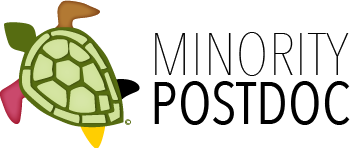I had the great opportunity to attend the Supporting Diversity in Science Writing panel at the Science Writers 2014 Conference. As a proponent of diversity in the sciences, I was very eager to attend this session. My excitement was shared by many others as more than 70 participants attended.
The panel featured
- Tracie Powell, Founder of AllDigitocracy
- Nidhi Subbaraman, Staff writer for BetaBoston
- Anna Lee Strachan, Freelance producer for PBS's NOVA series
- Philip Yam, Managing editor for Scientific American
- Francie Diep, Freelance science reporter
- Apoorva Mandavilli, a science journalist and director of SFARI, moderated the session.
Current State of Affairs
Many panelists recalled enduring many microaggressions in the newsroom. Microaggressions are unconscious or conscious subtle statements or behaviors that are hostile and damaging. While not overtly discriminatory, these episodes are demeaning especially to people of color and minority groups. As Yam stated, "Small slights that happen throughout the day because of your ethnicity make you question your confidence." Subbaraman described an instance where her Indian nationality became an unwarranted topic of conversion during a job interview. When Subbaraman asked her potential salary, the interviewer responded, "Well that's the Indian coming out." Strachan relayed experiences of sexism including an instance where she was mistaken for a subordinate rather than the director of a television show set. Panelists often let these episodes slide as they were afraid of repercussion on their careers.
Small slights...because of your ethnicity make you question your confidence - Yam
Results from a survey conducted by Diep offered some sobering findings about diversity in the newsroom (Diep 2014). She publicized the survey on various science writing forums. Although the survey only received 46 responses, the results were telling. In response to a question on experiences of being an underrepresented minority in the newsroom, five respondents (10.8%) reported experiences of microaggressions. Many respondents thought finances were the most important barriers for increased diversity in science writing. Minorities may not see journalism as a viable career because of low salaries. Further, young people from underrepresented groups may not be able afford the costs of unpaid internships or paid internships in urban areas were news outlets are concentrated.
Solutions?
Yam listed a number of journalism organizations that focus on minorities where writers can find support and opportunities including the Asian American Journalists Association. (Editor's note: Find the diversity journalism organizations AAJA, NABJ, NAHJ, NLGJA, NAJA, and SAJA with this stakeholder roster.) Subbaraman encouraged audience members to advocate for minorities when job opportunities open up. She further stressed that newsrooms need to be aware of the visa process when hiring international journalists. She and Ms. Mandavilli started Culture Dish, an online community featuring news and resources for minority science writers. Strachan mentioned the importance of building a network of people in various points of their careers to rely on in times of distress. Unfortunately, as panelist Tracie Powell points out "We [people of color] are not part of the network." As a result people of color do not hear about job opportunities. Further she discussed the importance of increasing pipeline programs for people of color. From my own personal experience, I advocate for great programs for underrepresented youth such as the Chicago Youth Voices Network.
References
F. Diep (2014) Diversity in Science Writing: a Survey, TheOpenNotebook, September 23
Kunmi Sobowale is a Doctor of Medicine candidate at the University of Chicago interested in health care disparities. His work on mental health and STEM education and has been featured in USA Today, Health Affairs, KevinMD, and Primary Care Progress Notes. He is a recipient of the DiverseScholar NASW 2014 Diversity Travel Fellowship. Any opinions expressed in this article are solely those of the author.
The citation for this article is:
K. Sobowale (2014) Enlightening Testimonials from Diverse Science Writers. DiverseScholar 5:8
Originally published 29-Oct-2014
DiverseScholar is now publishing original written works. Submit article ideas by contacting us at info@DiverseScholar.org. This work is licensed under a Creative Commons Attribution-Noncommercial-No Derivative Works 3.0 Unported License.
![]()
